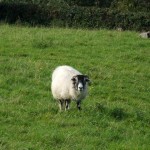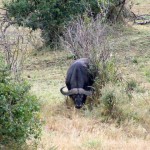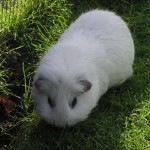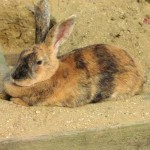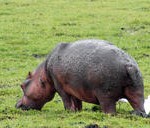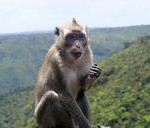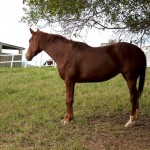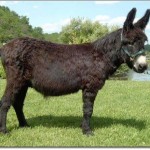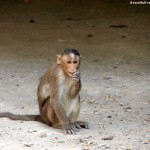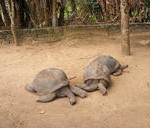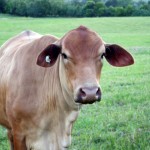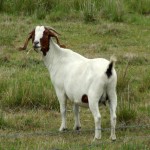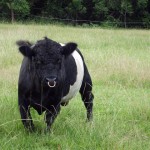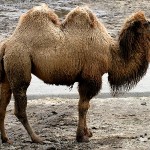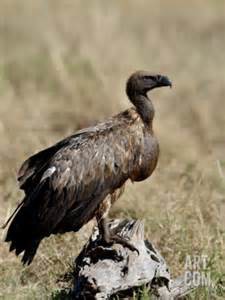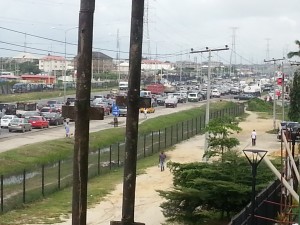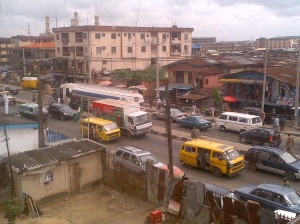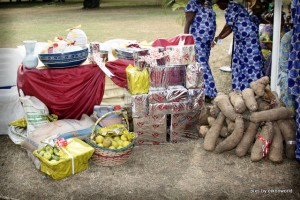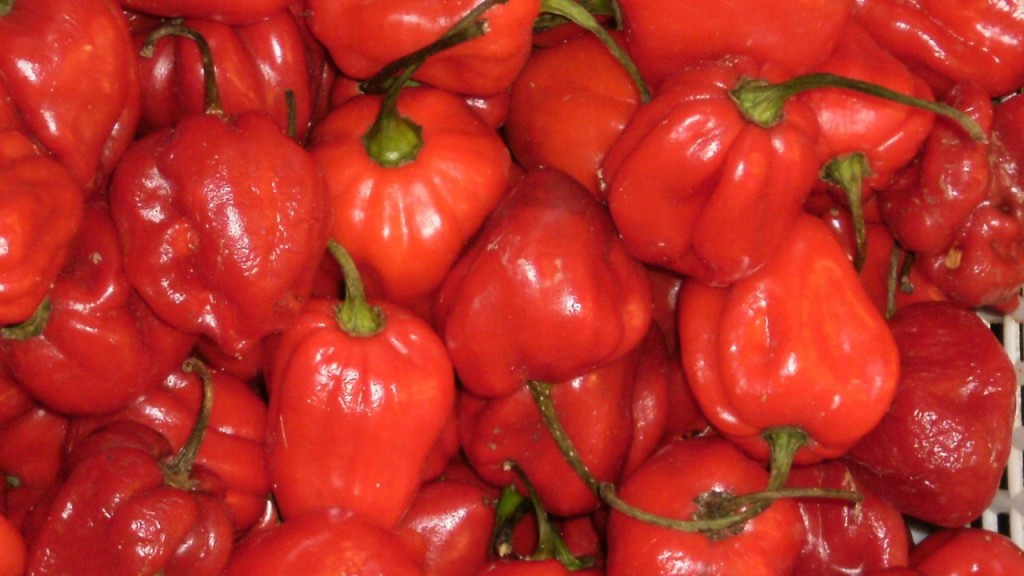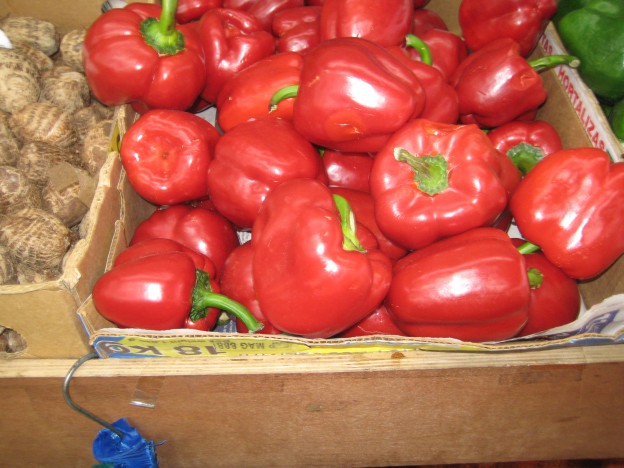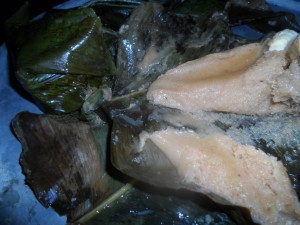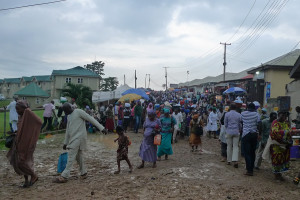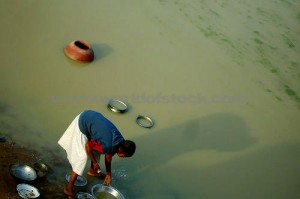Orukọ́ Ẹranko àti Àwòrán – Yoruba Names of Animals and picturesOriginally Posted on June 21, 2013, last updated on June 25, 2013 and reposted on May 30, 2019
“A ki i jẹ Igún, a ki i fi Ìyẹ́ Igún rinti: Ẹnu Ayé Lẹbọ” –“It is forbidden to eat the Vulture or use its feather as cotton bud: One should be careful of what others say”Originally Posted on December 29, 2015, last updated on December 29, 2015 and reposted on May 30, 2019
Ohun ti o jẹ èèwọ̀ tàbi òfin ni ilú kan le ma jẹ èèwọ̀/òfin ni ilú miran ṣùgbọ́n bi èniyàn bá dé ilú, ó yẹ ki ó bọ̀wọ̀ fún àṣà àti òfin ilú. Bi èniyàn bá ṣe nkan èèwọ̀, ó lè ṣé gbé ti kò bá si ẹlẹri lati ṣe àkóbá tàbi ki ó fi ẹnu ṣe àkóbá fún ara rẹ̀.
Ni ilú kan ti a mọ̀ si “Ayégbẹgẹ́”, àwọn àlejò ọkùnrin meji kan wa ti orúkọ wọn njẹ́ – Miòṣé àti Moṣétán. Ọba ilú Ayégbẹgẹ́ kede pé èèwọ̀ ni lati jẹ ẹiyẹ Igún ni ilú wọn. Akéde ṣe ikilọ̀ pé ẹni ti ó bá jẹ Igún, ikùn rẹ yio wu titi yio fi kú ni. Àwọn àlejò meji yi ṣe ìlérí pé kò si nkan ti yio ṣẹlẹ̀ ti àwon bá jẹ Igún, nitori eyi wọn fi ojú di èèwọ̀ ilú Ayégbẹgẹ́.
Miòṣé, lọ si oko, ó pa Igun, ó din láta, ó si jẹ́, ṣùgbọ́n ó pa adiẹ, ó da iyẹ́ adiẹ si ààtàn bi ẹni pé adiẹ ló jẹ. Ọ̀pọ̀ ará ilú ti wọn mọ̀ pé èèwọ̀ ni lati jẹ Igún paapa, jẹ ninú rẹ, ṣùgbọ́n wọn kò mọ pé Igún ni àwọn jẹ, wọn rò wi pé adiẹ ni. Miòṣé fi ọ̀rọ̀ àṣiri yi sinú lai si nkan ti ó ṣe gbogbo àwọn ti ó jẹ Igún pẹ̀lú rẹ.
Moṣétán lọ si oko ohun na a pa Igun, ó gbe wá si ilé, ṣùgbọ́n kò jẹ́. Ó pa adiẹ dipò Igún, o din adiẹ ó jẹ ẹ, ṣùgbọ́n, ó da iyẹ́ Igún si ààtàn bi ẹni pé Igún lohun jẹ. Ni ọjọ́ keji àwọn ará ilú ri iyẹ́ Igún wọn pariwo pé Moṣétán jẹ èèwọ̀, ó ni bẹni, ohun jẹ Igún. Ni ọjọ́ kẹta inú Moṣétán bẹ̀rẹ̀ si i wú titi ara fi ni. Nigbati ìnira pọ̀ fún Moṣétán, ó jẹ́wọ́ wi pé adiẹ lohun jẹ, ṣùgbọ́n wọn ko gba a gbọ pé kò jẹ Igun, titi ti ó fi ṣubú ti ó si kú. Yorùbá ni “Ẹnu Ayé Lẹbo”, Moṣétán fi ẹnu kó bá ara rẹ̀.
Ẹ̀kọ́ ìtàn yi ni pé, àfojúdi kò dára, ó yẹ ki enia pa òfin mọ nitori “Bi a ti nṣe ni ilé wa, èèwọ̀ ibò miran”. Ẹni ti kò bá pa òfin mọ, á wọ ijọ̀ngbọ̀n ti ó lè fa ikú tàbi ẹ̀wọ̀n.
ENGLISH TRANSLATION
What is forbidden or a law in one country may not be forbidden or a law in another, but as a migrant or a visitor one should respect the culture and the law of the land. If one should break the law, sometimes one may escape the consequence if there is no witness and if one does not implicate himself/herself.
In one town named “Ayegbege”, there were two male visitors whose names were – Miose (meaning I did do it) and Mosetan (meaning I confirm doing it). The King of Ayegbege announced that it is forbidden to eat the Vulture in their town. The Town crier announced that whoever eats the Vulture, would be bloated to death. The visitors, boasted that nothing would happen if they eat the Vulture, as a result they ignored Ayegbege’s culture.
Miose went hunting, he killed the Vulture, brought it home and roasted it with pepper and ate it, but he killed a chicken and threw the feathers in the waste pit as if he had eaten a chicken. Many of the indigenes who were aware that it was forbidden to eat Vulture joined in the eating as they were not aware it was a Vulture as they thought they joined him in eating chicken. Miose kept it as a secret as he did not reveal the truth to those joined him in eating the Vulture. After many days, there seem to be no repercussion for him and those who joined in the eating of the Vulture.
Mosetan on the other hand, went to the farm, killed a Vulture, brought it home, but did not eat it. He killed a chicken instead, but he threw the Vulture’s feather on the waste pit as if he had eaten the Vulture. On the second day, people saw the Vulture’s feather and raised alarm that Mosetan had eaten the forbidden Vulture contrary to their culture, he did not deny, he confirmed eating the Vulture. Three days later, his stomach began to swell causing him pain. When the pain increased, Mosetan confessed that he only ate chicken, but the people did not believe him, until he fell and died. According to Yoruba proverb meaning “One should be careful of what others say”, Mosetan implicated himself.
Lessons from this story are to warn that, it is not good to berate warnings and it is important to keep the law because “What is acceptable in one place is forbidden in another”. The consequence of not keeping the law is either death or prison sentence.
Originally posted 2015-12-29 23:20:09. Republished by Blog Post Promoter
Ìkà ò jẹ́ ṣe ọmọ ẹ bẹ́ẹ̀ – Gbi gba wèrè mọ ẹ̀sìn Aláwọ̀-dúdú: The wicked always protect their own – Religious madness in AfricaOriginally Posted on April 18, 2015 and reposted on May 30, 2019
Ni ọjọ́ kẹrin-din-lógún, oṣ̀u kẹrin ọdún Ẹgbãlemẹdógún, ọwọ́ Ọlọpa Italy tẹ ọkunrin mẹ̃dogun ti ó ju àwọn Ìgbàgbọ́ mejila si odò nitori ẹ̀sìn lati inú ọkọ̀ ojú agbami ti o nko Aláwọ̀-dúdú ti ó nsa fún ogun àti iṣẹ lo si Òkè-òkun/Ilú-Òyinbò.
Ni gbogbo ọ̀nà ni Aláwọ̀-dúdú fi gba wèrè mọ́ ẹ̀sìn. Lára gbi gba wèrè mọ́ ẹ̀sìn ni Àlùfã fi ni ki àwọn ọmọ ijọ bẹ̀rẹ̀ si jẹ koríko ti ọmọ rẹ kò lè jẹ, ṣùgbọ́n àwọn ọmọ ijọ ti ó jẹ koríko ló gba wèrè mọ́ ẹ̀sìn. Ọmọ ijọ ti kò le bọ ara rẹ tàbi bọ ọmọ, ti ó nda ida-mẹwa nigbati Olóri Ijọ nfi owó yi gun ọkọ̀ òfúrufú fi han pé ọ̀pọ̀ ti gba wèrè mọ́ ẹ̀sìn. Aládurà ti ó nri iran ti kò ri tara rẹ gba wèrè mọ́ ẹ̀sìn.

‘The Chibok girls are never being freed,’ says Boko Haram leader
Ẹlẹ́sin Mùsùlùmi ti ó npa ẹlòmíràn ni orúkọ ẹ̀sìn gba wèrè mọ́ ẹ̀sìn. Eyi ti ó ni èèwọ̀ ni iwé kika fún ẹ̀sìn ohun “Boko Haram” ti wọn fi nba ilé iwé jẹ, ji àwọn obinrin kò kúrò ni ilé iwé, fihàn pé wọn gba wèrè mọ́ ẹ̀sìn. Ọjọ́ kẹrinla oṣù kẹrin ọdún Ẹgbãlemẹdógún ló pé ọdún kan ti ẹgbẹ́ burúkú “Boko Haram” ti ko igba-le-mọkandinlógún obinrin kúrò ni ilé-iwè ni Chibok. Lèmọ́mù rán ọmọ tirẹ̀ lọ si ilé-iwé, irú àwọn ọmọ Lèmọ́mù ti ó ka iwé ni ó nṣe Òṣèlú tàbi jẹ ọ̀gá ni iṣẹ́ Ìjọba.
Kò si Òṣèlú Aláwọ̀-dúdú ti kò sọ pé ohun jẹ Onígbàgbọ́ tàbi Mùsùlùmi ṣùgbọ́n eyi kò ni ki wọn ma ja ilú ni olè. Ìfẹ́ agbára ki jẹ ki wọn fẹ gbe ipò silẹ̀ nitori eyi wọn á fi ẹ̀sìn da ilú rú. Eleyi ló fa ogun ni ọ̀pọ̀lọpọ̀ ilẹ̀ Aláwọ̀-dúdú.
Kàkà ki Aláwọ̀-dúdú yẹ ara wọn wò, gbogbo ọlọ́rọ̀ àti òtòṣì fẹ́ kó kúrò ni ilẹ̀ Aláwọ̀-dúdú lọ si Òkè-òkun/ilú òyinbó. Bi gbogbo ará ilú Aláwọ̀-dúdú bá kó lọ si Òkè-òkun/ilú òyinbó pẹ̀lú bi wọn ṣe gba were mo esin, wọn á ba ibẹ̀ jẹ́. “Ọjọ́ ti wèrè bá ti mọ̀ pé wèrè ni ohun ni iwòsàn bẹ̀rẹ̀”, bi Aláwọ̀-dúdú kò bá mọ̀ pé wọn gba wèrè mọ́ ẹ̀sìn, kò lè si àtúnṣe ni ilẹ̀ Aláwọ̀-dúdú.
Ìkà kò jẹ́ ṣe ọmọ rẹ bẹ́ ẹ̀, ọmọ Olóri Ìjọ, Lèmọ́mù àti àwọn Òṣèlú ilẹ̀ Aláwọ̀-dúdú kò si ninú àwọn ti ó nkú si odò nitori àti lọ si Òkè-òkun ni tipá-tipá. Ìwà ikà àti ijà nitori ẹ̀sìn kò mú ọgbọ́n dáni.
ENGLISH TRANSLATION
On the fourteenth of April Twenty-fifteen, the Italian Police arrested fifteen men that threw over board twelve Christians from the ship bringing Africans who were fleeing from war and poverty to Abroad/Europe.
African’s religious madness are reflected in every way. Evidence of religious madness can be seen in the incidence of the Pastor who asked his Church members to eat grass that he could not ask his children to eat, but the members who ate grass without question can be said to be religiously mad. The poor folks who are unable to feed themselves or their children and yet contribute tithe for a Pastor using the tithe to ride a jet shows religious madness. Acclaimed Prophets who keep prophesying without seeing vision of evil occurrence in his/her immediate environ can be said to be religious madness.
Other evidence of religious madness can be traced to Muslim killing others in the name of religion. Those who said “Western Education is forbidden” “Boko Haram” that led them to destroying Schools, abducting School girls are simply mad. On the fourteen of April, Twenty-fifteen, it became one year that the terrorist group “Boko Haram” abducted the two hundred and nineteen girls from School in Chibok. Imam and prominent Muslims send their children to School, such children later become Politicians or big bosses in Government Service.
There is no African Politician that is not claiming to be Christian or Muslim but this never deterred them from stealing public funds. Love of power make them to cling to positions using religion to sow discord among the people. This is one of the main causes of war in many of the African countries.
Instead of Africans re-examining their situation, both the rich and the poor wants to migrate Abroad/Europe. If all Africans migrate Abroad/Europe with their religious madness, they will end destroying there. Yoruba adage said “Healing can only begin When a mad person realize his/her true condition”, if African fail to realize the havoc caused by religious madness, there can be no restoration.
The wicked will never treat their children wickedly, children of Christians and Muslim leaders and Politicians are not among the migrants dying on the sea as a result of migrating to Europe at all cost. Wickedness and war in the name of religion is not sensible.
Originally posted 2015-04-18 00:30:26. Republished by Blog Post Promoter
Gbígbé Ìṣe Yorùbá Jáde Lórí Ẹ̀rọ Ayélujára – Publishing Yoruba customs/culture on the NetOriginally Posted on December 12, 2014, last updated on December 12, 2014 and reposted on May 30, 2019
Àwọn ọ̀nà oríṣiríṣi ni a le fi gbé àṣà Yorùbá àti lílò iṣẹ́ ọ̀nà ni ilẹ̀ Yorùbá jáde lórí ẹ̀rọ-alántakùn. Onírúurú ìṣe ọ̀nà ni a le fi sí ẹ̀rọ-alántakùn bí i sinimá, àwòrán, ọ̀rọ̀ aláìláwòrán, ọrin àti ìtàn ti ayé àtijọ́. A máa fi àṣà Yorùbá hàn sí gbogbo ènìyàn lórí ẹ̀rọ-alántakùn nípa fífi gbogbo ohun tí ó dára gan hàn ni nínú ilẹ̀ Yorùbá àti ilẹ̀ Áfíríkà. Gbogbo àwọn orílẹ̀-èdè láàyé máa rí ilẹ̀ Áfíríkà bí o ti ṣe rí gan gan.
Lóde òní á rí ohun gẹ̀ẹ́sì púpọ̀ lórí ẹ̀rọ alántakùn sùgbọ́n à á rí ohun Áfíríkà díẹ̀, bí ó ti lẹ̀ jẹ́ pé ilẹ̀ Áfíríkà tóbi gan an ni. Nítorí náà a ní ànfàànì láti gbé ìṣe Yorùbá jáde nípaṣè ẹ̀rọ alántakùn. Ó máa gbé àṣà Yorùbá jáde lórí ẹ̀rọ ayélujára fún gbogbo ènìyàn láti rí gbogbo ohun tí ó dára nípa ilẹ̀ Yorùbá àti ilẹ̀ Áfíríkà.
A le máa wá lórí Google Search láti rí púpọ̀ nípa àṣà Yorùbá bí i èdè, àwòrán, àpóti-amóhùn-máwòrán, ìròyìn àti ìtàn Yorùbá oríṣiríṣi. A tún ní Google Search tí ó nlo èdè Yorùbá, a sì ní Wikipedia fún Yorùbá, nairaland.com àti yorupedia.com. Ọ̀nà dáradára wọ́nyìí ni láti bá ara ẹni sọ̀rọ̀ nípa ìṣe Yorùbá, a sì fi gbogbo náà hàn sí àwọn láayé. Láìpẹ́ ẹ̀rọ ayélujára máa ṣe ju láti yára wá rí ìṣe Áfíríkà fún ilẹ̀ Náíjíríà.
ENGLISH TRANSLATION
There are many ways of promoting Yoruba culture and arts on the net. Various Yoruba works of art such as cinema, pictures, articles, song and folklores can be publicised on the net. We need to showcase Yoruba culture to all people through various network by enlightening the world about what is good in Yoruba land and Africa as well. This will enable other Nations of the world to have a better perspective of Yoruba culture and Africa as a whole.
In recent times, in spite of the fact that Africa is a large continent, it easy to find many things on English/Europe on the Net, than finding anything on Africa. As a result, there is an ample opportunity to publish Yoruba culture through the Net. Promoting Yoruba/African culture and language on the Internet will expose this beautiful culture to the entire world.
The more publications on Yoruba culture, using Yoruba language, images/pictures, video, news and various Yoruba fables/folklores on the Internet, the easier it will become to search for such on Google. This will enhance the creation of search engines in Yoruba language or more recognition of Yoruba language and culture on Google Search, Wikipedia, nairaland.com for Yoruba speakers. This is a beautiful way of communicating in Yoruba. It is hoped, that soon, it will become easier to search for information on Africa in Yoruba language in Nigeria.
Originally posted 2014-12-12 01:05:57. Republished by Blog Post Promoter
“Bi ojú bá mọ́, Agbe á yalé Aláró, Àlùkò á yalé Olósùn, Lékeléke á yalé Ẹlẹ́fun”: “At the dawn of the day, the blue-touraco makes for the home of the indigo dealer; …”Originally Posted on August 18, 2015, last updated on August 18, 2015 and reposted on May 30, 2019
Bi a bá wo òwe yi, a o ri pe Agbe pọn bi aró, Àlùkò pupa bi osùn nigbati Lékeléke funfun bi ẹfun. Nitori eyi, bi wọn kò ti ẹ̀ lọ si ilé Aláró, Olósùn àti Ẹlẹ́fun, àwọ̀ wọn á si wa bẹ̃, síbẹ-síbẹ, àwọn ẹiyẹ wọnyi gbiyànjú lati lọ si ibi ti wọn ti lè ri ohun ti yio tú ara wọn ṣe ki ó ma ba ṣa.
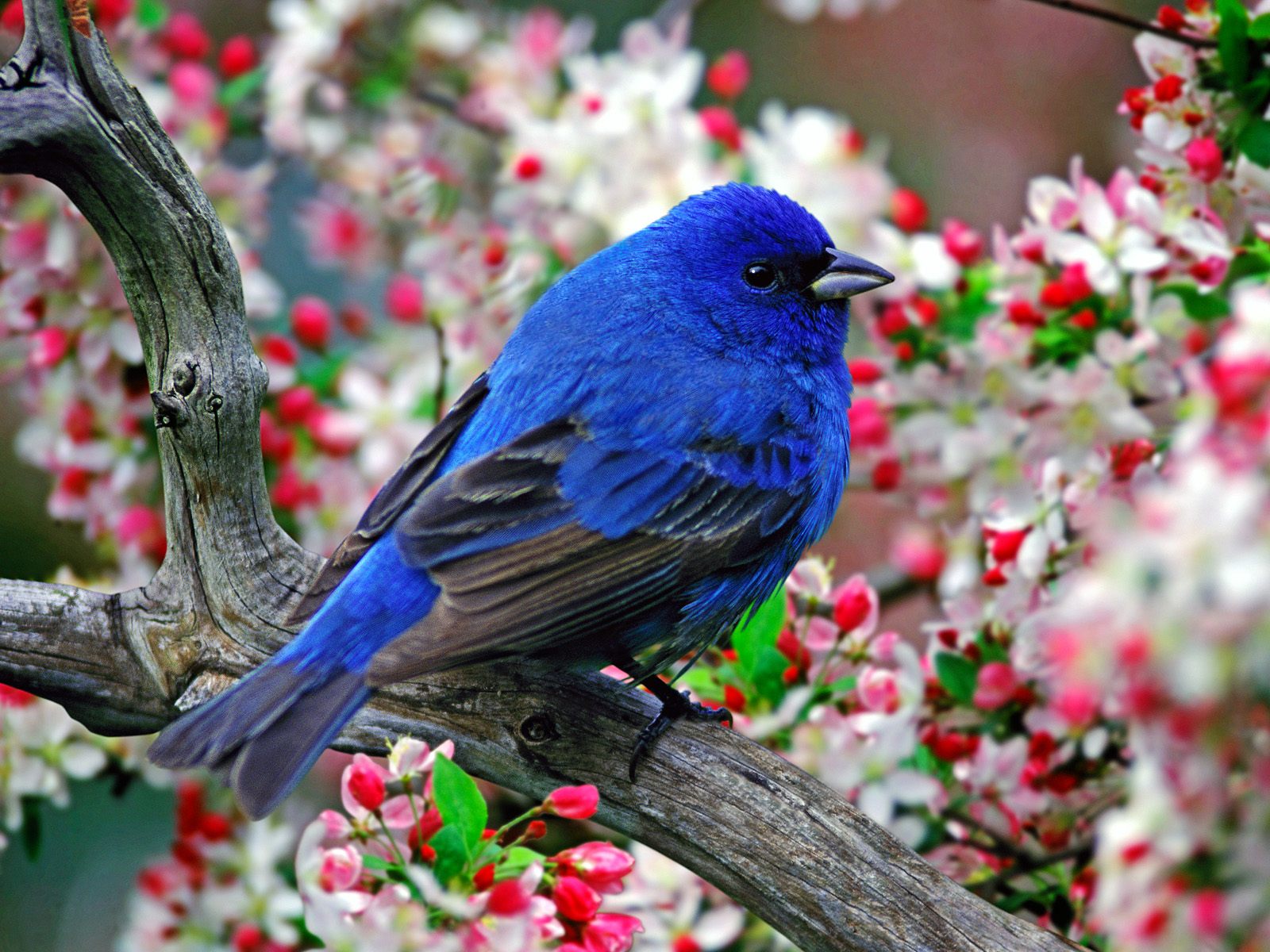


A lè fi òwe Yoruba ti o ni “Bi ojú bá mọ́, Agbe á yalé Aláró, Àlùkò á yalé Olósùn, Lékeléke á yalé Ẹlẹ́fun” bá ilú, agbójúlógún àti ọ̀lẹ enia wi. Kò si bi owo ilú, òbi, tàbi ẹbí ti lè pọ̀ tó, bi enia kò bá ṣiṣẹ́ kun á parun. Irú ilú ti ó bá ńná iná-kuna, agbójúlógún àti ọ̀le wọnyi yio ráhùn ni ikẹhin. Ẹ gbọ́ orin ti àwọn ọmọ ilé iwé ńkọ ni àsikò eré-ìbílẹ̀ ni ojú iwé yi.
Agbe ló laró, ki ráhùn aró,
Àlùkò ló losùn, ki ráhùn osùn
Lékeléke ló lẹfun, ki ráhùn ẹfun,
Ka má rahùn owó,
Ka má rahùn ọmọ
Ohun táó jẹ, táó mu kò mà ni wọn wa o) (lẹmeji)
ENGLISH TRANSLATION
Examining the above Yoruba proverb, it would be observed that the Blue Touraco as the name indicated is naturally dark like the dye, the red Woodcock is red like camwood resin, while the cattle egret is as white as chalk. As a result, even if these birds did not seek after the dye, camwood resin and chalk Dealers, their natural colours are permanent, yet these birds still diligently seek after whatever will enhance their beauty so that it will not fade off.
We can use the Yoruba proverb translated as “At the dawn of the day, the blue-touraco makes for the home of the indigo dealer; the red woodcock seeks out the dealer of the camwood resin; the cattle egret heads for the home of the dealer of chalk” to advice a Nation, Fortune Hunters, and an indolent person. No matter how wealthy a nation, a parent or family could be, if people refused to work to increase such wealth, it will vanish. Such nation, fortune hunters or the indolent would come to poverty in the end. Check on this page the cultural song relating to this proverb as often sang during the traditional play by School children.
Originally posted 2015-08-18 17:10:07. Republished by Blog Post Promoter
“Ilé làbọ̀ simi oko, ṣùgbọ́n bi ilé bá sanni àwọ̀ là nwò”: “Home is for rest on return from the farm, but the convenience of the home is a reflection on the skin”Originally Posted on November 15, 2013, last updated on November 18, 2013 and reposted on May 30, 2019
Gbogbo olólùfẹ́ èdè Yorùbá, pataki àwọn ti o fi ìfẹ́ tẹ̀ lé àkọ-sílẹ̀ ọ̀rọ̀ gbígbé èdè àti àṣà Yorùbá́ lárugẹ lóri ẹ̀rọ ayélujára, mo jẹ yin ni àlàyé ohun ti ojú ri lẹhin àbọ̀ oko. Ẹ o ṣe akiyesi wípé, ìwé kikọ wa din kù diẹ nitori adarí ìwé lọ bẹ ilé wò fún ìgbà diẹ. Ni gbogbo àsìkò ti adarí ìwé fi wa ni ilé (Nigeria), ìṣòro nla ni lati lè kọ ìwé lori ayélujára nitori dákú-dájí iná mọ̀nà-mọ́ná.
Ó ṣeni lãnu pé “oko” ninu àlàyé yi (òkè-òkun/ìlú-oyinbo) sàn ju “ilé” Èkó. Lẹhin ọ̀pọ̀lọpọ̀ ọdún, “kàkà ki ewé àgbọn dẹ, koko ló tún nle si”. Ni totọ, àwọn Oní-ṣòwò ni orílẹ̀ èdè Nigeria ǹgbìyànjú, nitori kò rọrùn lati ṣòwò ni ìlú ti ohun amáyé-dẹrùn ti ìgbàlódé bi iná mona-mona, òpópónà tó dára, omi mimu, àbò, àti bẹbẹ̃ lọ, kò ti ṣe dẽde. A ṣe akiyesi pé nkan wọ́n ni ilé ju oko lọ, pataki ìnáwó lórí ounjẹ, ẹrọ iná mọ̀nà-mọ́ná àti ọkọ̀ wíwọ̀. Ai si iná, ariwo ẹ̀rọ iná mọ̀nà-mọ́ná, fèrè ọkọ̀ àti sún-kẹrẹ fà-kẹrẹ ọkọ̀ kò jẹ́ ki akọ̀we yi gbádùn ilé bi oko.
A lè sọ wípé àwọn Gómìnà ilẹ̀ Yorùbá ngbiyanju, ṣùgbọ́n “omi pọ̀ ju ọkà lọ”. Àyè iṣẹ́ ti ó yẹ ki Ìjọba àpapọ̀ ṣe ti wọn kò ṣe ńfa ìnira fún ará ìlú. “Ẹ̀bẹ̀ là ńbẹ òṣìkà ki ó tú ìlú rẹ̀ ṣe”, nitori eyi, a bẹ Ìjọba àti àwọn Gómìnà pé ki wọn sowọ́ pọ̀ lati tú orílẹ̀ èdè ṣe ni pataki ìpèsè ohun amáyé-dẹrùn.
ENGLISH TRANSLATION
I owe all the lovers of Yoruba language, particularly those following, lovingly the write up on promoting the Yoruba language and culture on the internet, an explanation on what was observed on return from the farm. You might have observed that there was a reduction in our publication because the Editor went to visit home for a little while. In all the time, the Editor was away in Nigeria, it was mostly difficult to publish on the internet because of the epileptic power supply.
It is a pity that “the farm” in this write up (Oversea/Europe) is better than “Home – Lagos”. After many years “Instead of the coconut leaf getting softer, it is getting harder”. Truly, the business men/women are trying because it is not easy to do business in the country where the infrastructure such as electricity, good road, potable water, security etc. are unstable. It is observed things are more expensive in the city than in the farm, particularly expenses on food, power generators and transportation. Lack of constant power supply, noise from generators, vehicular horning and traffic jam was a hindrance to enjoying home like the farm by the Editor.
It can be said that the Governors in Yoruba land are trying their best, but “more water than solid food”. The vacuum created by the neglect of the responsibilities of the Federal Government is causing inconvenience for the people. “We plead with the wicked to repair the country”, because of this, we appeal to the Federal Government and the Governors to cooperate to repair the country by providing the basic infrastructure.
Originally posted 2013-11-15 21:57:48. Republished by Blog Post Promoter
“Gèlè ò dùn bi ká mọ̀ ọ́ wé, ká mọ̀ ọ́ wé, kò tó kó yẹni”: “Head tie is not as sweet as the skill of tying, having the skill of tying is not as sweet as how well it fits”Originally Posted on June 26, 2015, last updated on June 25, 2015 and reposted on May 31, 2019
Aṣọ Yorùbá, ìró àti bùbá kò pé lai si gèlè. Gèlè oriṣiriṣi ló wà̀, a lè lo gèlè aṣọ ìbílẹ̀ bi: aṣọ òfi/òkè, àdìrẹ, tàbi ki á yọ gèlè lára aṣọ. Ọpọlọpọ gèle ìgbàlódé wá lati òkè òkun.
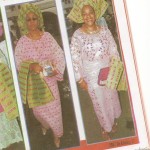
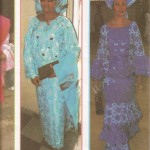
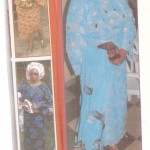


Ìmúra obinrin Yorùbá kò pé lai wé gèlè, ṣùgbọ́n òwe Yorùbá ti ó ni “Gele ko dun bi ka mo we, ka mo we, ko to ko yeni”, fihan pe ki ṣe owó ti enia ná lati ra gèlè ni ó ni kó yẹni. A lè fi ò́we yi bá awọn obinrin ti o nṣe àṣejù tabi àṣehàn, nipa ki kó owó nlá lóri àti ra gèlè lati òkè òkun. Ọ̀pọ̀ gèlè lati òkè òkun ṣòro lati wé nitorina bi enia ò bá we dáadáa, kò ni yẹni. A le fi òwe yi tún gb́ àwọn obinrin ti ó kó gèlè aṣọ-ẹbí jọ ni ìyànjú pé ki ṣe bi gèlè ṣe pọ̀ tó ló mú kó yẹni. Ẹ jẹ́ ki á ṣe ohun gbogbo ni ìwọ̀ntún-ìwọ̀nsì.
ENGLISH LANGUAGE
Yoruba outfit (Wrapper and top) is incomplete without a Head tie making it an integral part of Yoruba dressing. Head tie comes in various fabrics, it can be traditional woven fabric known as (aṣọ òfi/òke), traditional tie and dye cotton fabric or cutting out the head tie from the main fabric. Many modern head tie are from imported fabric.
A typical Yoruba woman’s dressing is incomplete without the head tie, but the Yoruba proverb that said “Head tie is not as sweet as the skill of tying, having the skill of tying is not as sweet as how well it fits”, can be used to show that it is not how expensive that determines how well the head tie will fit. Many imported head tie fabric from abroad are stiff and difficult to tie, hence without the skill of tying it right, it may not fit. This proverb can also be used to discourage women who are fond of piling up various head ties acquired through buying of ceremonial uniform, that it is not how many but how well. Let us do all things in moderation.
Gèlè aṣọ òkè òkun ti ìgbàlódé̀̀̀̀ – Modern imported fabric head-tie. Courtesy: @theyorubablog
Gèlè aṣọ ànkàrá – Head tie from same (cotton fabric). Courtesy: @theyorubablog
Gèlè aṣọ òfì/òkè – Head tie from traditional woven fabric. Courtesy: @theyorubablog
Originally posted 2015-06-26 10:30:26. Republished by Blog Post Promoter
ẸRÙ FÚN ÌDÍLÉ ÌYÀWÓ – LIST FOR BRIDE’S FAMILY – Apá Kẹta – Part ThreeOriginally Posted on October 29, 2013, last updated on December 11, 2014 and reposted on May 31, 2019
Ìyàtọ̀ diẹ̀ ló wà lãrin awọn ẹru igbéyàwó ti a kọ́ si ojú iwé yi lati idile si idile. Fún àpẹre: idile miran fẹ odidi iti ọ̀gẹ̀dẹ̀, nigbati àwọn idile miran lè bẽre fún àpò gãri. Kò si àyè àti sin abo ewúrẹ́ fún awọn ti o ńgbé ìlú nla tàbi ìlú òyinbó́, nitorina a lè fi owó dipò fún ìyá àgbà ni abúlé ki wọn ra abo ewúrẹ́ lati sin fún ìyàwó. Awọn ẹlẹ́sìn ìgbàlódé lè sọ wipé awọn ò fẹ́ ki wọn fi ataare àti obì ṣe àdúrà fún ọkọ ati ìyàwó. A tún ṣe akiyesi wipé wọn ki tú àpóti ìyàwó mọ, nitori ni ayé àtijọ́, wọn yio ṣi àpóti ki gbogbo ẹbí ri awọn ohun ẹ̀ṣọ́ ti ọkọ ìyàwó ra fún ìyàwó rẹ, eyi bo àṣírí ìnáwó lori awọn ohun ẹṣọ. Ẹbi tún lè wo ṣe fún ọkọ ìyàwó lati gba idaji oye iṣu tàbi ẹrù lati bo ni àṣiri.
ENGLISH TRANSLATION
There is just a little difference between the bridal list items and the family list from one family to the other. For example: some family would request for bunch of plantain, while the other would request for a bag of coarse cassava flour instead. There is no place to rear a she-goat for those living in the big city or living abroad, hence money can be given to bride’s grandmother or aunt to rear one in the village on her behalf. Also, those practising modern religion may not want alligator pepper and Cola-nut to pray for the bride and groom. It is also observed that, the practice of opening the bridal box to show off beautiful items bought by the groom in the presence of the family has been discontinued. The family can also be considerate to the groom by receiving half of the items on the list or less.
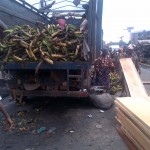
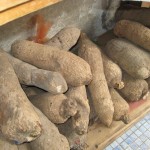

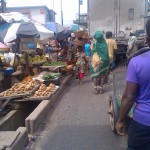
| ẸRÙ FÚN ÌDÍLÉ ÌYÀWÓ – LIST FOR BRIDE’S FAMILY | |||||||
| YORÙBÁ | ENGLISH | IYE | Quantity | D́IPÒ | SUBSTITUTE | ||
| Iṣu | Yam | Mejilogoji | 42 | Ọ̀dùnkún | 2 Bags of Potatoes | ||
| Obì | Kolanut | Mejilogoji | 42 | Èso àrọ́wọ́ tó | Available Fruits | ||
| Orógbó | Bitter Kola | Mejilogoji | 42 | Èso àrọ́wọ́ tó | Available Fruits | ||
| Atare | Alligator Pepper | Mọkanlelogun | 21 | ||||
| Abọ́ Aadun | Fried Corn Paste | Abọ́ Kan | 1 dish | ||||
| Iyọ̀ | Salt | Àpò Kan | I Bag | ||||
| Epo Pupa | Palm Oil | Garawa Kan | 1 Tin | Garawa Ò̀̀̀̀̀róró | 1 Tin of Vegetable Oil | ||
| Oriṣiriṣi Èso | Assorted Fruits | Àpẹrẹ Meji | 2 Baskets | Èso àrọ́wọ́ tó | Available Fruits | ||
| Oyin | Honey | Ìgo Meji | 2 Bottles | ||||
| Ìrèké | Sugar Cane | Igi Ìrèké Meji | 2 sticks of Sugar Cane | ||||
| Iyọ̀ Ìrèké oni horo | Sugar Cubes | Pálí Mẹwa Meji | 2 Packets of 10 | ||||
| Abo Ewúrẹ́ | She Goat | Ẹyọ Kan | 1 | Owó | Money | ||
| Ẹja gbigbẹ | Dry Fish | Mẹfa | 6 | Could be more | |||
| Ìrẹsi | Rice | Àpò Kan | 1 Bag | ||||
| Ìgò Ẹlẹsọ fún ọti | Decanter | Ìgò Meji | |||||
| Ẹmu | Palm Wine | Agbè Meji | Ẹmu-òyinbó | Champagne | |||
| Oriṣiriṣi ọti oyinbo | Assorted Drinks – Alchoholic & Non Alchoholic | Páli Merin | |||||
Originally posted 2013-10-29 20:54:27. Republished by Blog Post Promoter
Jọ mi, Jọ mi, Òkúrorò/Ìkanra ló ndà – Insisting on people doing things one’s way, would turn one to an ill-tempered or peevish personOriginally Posted on July 24, 2018, last updated on July 24, 2018 and reposted on May 31, 2019
Yorùbá ni “Bi Ọmọdé ba ṣubú á wo iwájú, bi àgbà ba ṣubú á wo ẹ̀hìn”. Bi enia bá dé ipò àgbà, pàtàki gẹ́gẹ́ bi òbí, àgbà ìdílé tàbi ọ̀gá ilé iṣẹ́, ẹni ti ó bá ni ìfẹ́ kò ni fẹ́ ki àwọn ti ó mbọ̀ lẹhin ṣubú tàbi ki wọn kùnà.
Ẹni ti ó bá fẹ ìlọsíwájú ẹnikeji pàtàki, ọmọ ẹni, aya tabi oko eni, ẹ̀gbọ́n, àbúro, ọmọ-iṣẹ, ọmọ ilé-iwé, aládúgbò, ẹbi, ọ̀rẹ́, ojúlùmọ̀ àti ará, a má a tẹnu mọ ìbáwí lati kìlọ̀ fún àwọn ti ó mbọ̀ lẹhin ki wọn ma ba a ṣìnà. Eleyi lè jẹ ki irú àgbà bẹ́ẹ̀ dàbi onikọnra lójú ẹni ti nwọn báwí. Fún àpẹrẹ ni ayé òde òní, bi òbí ba nsọ fún ọmọdé nígbà gbogbo pé ki ó ma joko si ori ayélujára lati má a ṣeré, ki ó lè sùn ni àsikò tàbi ki ó ma ba fi àkókò ti ó yẹ kó ka iwé ṣeré lóri ayélujára, bi oníkọnra ni òbí ńrí, ṣùgbọ́n iyẹn kò ni ki òbí ma ṣe ohun ti ó yẹ lati ṣe fún di dára ọmọ.
Yorùbá sọ wi pé, “Ajá ti ó bá ma sọnù, ki gbọ́ fèrè Ọdẹ”. Ki ènìyàn ma ba di oníkọran, kò si ẹni ti ó lè jọ ẹnikeji tán, àwọn ibeji pàápàá kò jọra. Bi ọkọ tàbi aya bá ni dandan ni ki aya tàbi ọkọ ṣe nkan bi òhun ti fẹ́ ni ìgbà gbogbo, ìkanra ló ńdà. Nitori èyi, bi enia bá ti ṣe ìkìlọ̀, ki ó mú ẹnu kúrò ti ó bá ri wi pé ẹni ti òhun ti báwí kò fẹ́ gbọ́.
ENGLISH TRANSLATION
According to a Yoruba adage, “When a child falls, he/she looks ahead, when an elder falls, he/she reflects on the past”. When one reaches the position of an elder, particularly as a parent, family leader, a big boss, or a benevolent person would not want those coming behind or less experienced go astray or make the same mistake one has made in the past.
Anyone who desired the progress of others such as one’s children, older or younger siblings, colleagues, students, neighbours, family, friends, colleagues and contemporaries, could persistently warn or correct to steer such person from going astray. The person at the receiving end of correction, often regard such elder as being peevish but that should not stop parents from steering the child to the right path.
Yoruba adage said “A dog that will be lost never listens to the hunter’s clarion call”. For one not to be tagged a peevish person, one should realize that no two persons’ mannerism are ever the same, even if they were twins. If a husband or wife should insist on their own way, it leads to being ill-tempered. As a result, once a person has expressed warnings, one should then desist from further persistent warnings, especially if the person being warned is not willing to heed warnings.
Originally posted 2018-07-24 21:38:33. Republished by Blog Post Promoter
“Ẹ̀mí ti ò jata, ẹ̀mí yẹpẹrẹ”: “Life devoid of consumption of pepper is trifle”Originally Posted on March 6, 2015, last updated on February 26, 2015 and reposted on May 31, 2019
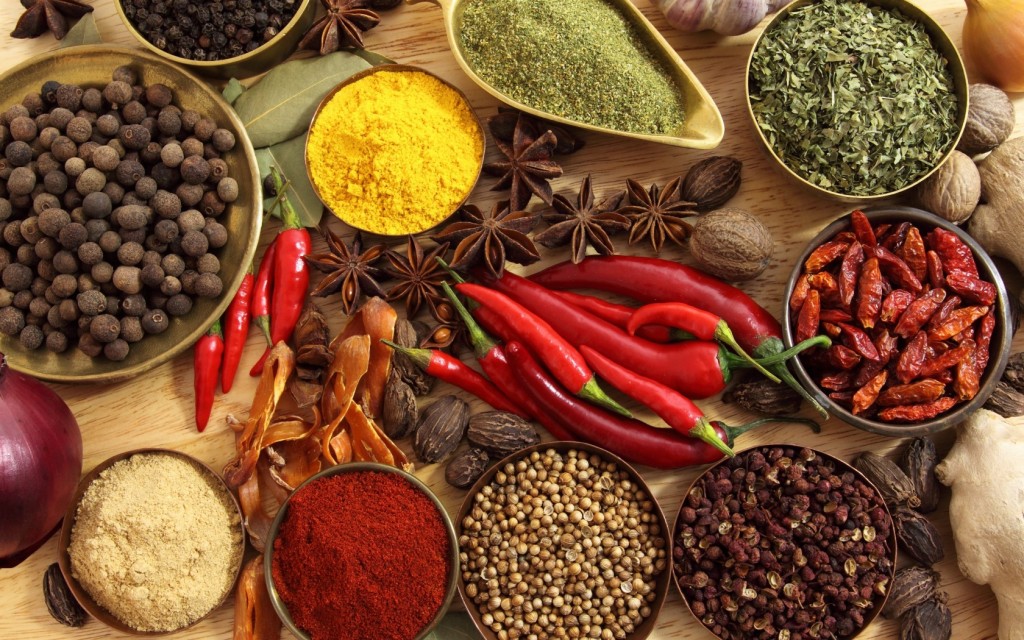
Ata-ṣọmbọ, Ata-wẹ́wẹ́, Ata-Ijọsin, Ata gbigbẹ, Ata gígún àti awọn èlò ọbẹ̀ – Jalapeno, Serrano, Cayenne & various spices. Courtesy: @theyorubablog
Ata ṣe pàtàki ninu àwọn èlò ọbẹ̀. Yorùbá ni “Ẹ̀mí ti ò jata, ẹ̀mí yẹpẹrẹ” nitori eyi, lai si ata ninu ọbẹ̀, ọbẹ̀ o pe. Ko si ọbẹ̀ Yoruba ti enia ma jẹ lai ni ata, fún àpẹrẹ wọn ki jẹ ila funfun tàbi Ewédú ti wọn se lai ni ata lai bu ata ọbẹ̀ si.
Oriṣiriṣi ata: Ata-rodo, Ata-ṣọmbọ, Ata-wẹ́wẹ́, Ata-Ijọsin, Tataṣe, Ata gbigbẹ, Ata gígún
Àwòrán ata ti ó wá ni ojú ewé yi wọ́pọ̀ ni ọjà Yorùbá.
Ọbẹ̀ Yorùbá ti wọn fi ata gígún àti èlò ilẹ̀ wa se ki wọn bi ọbẹ̀ ìgbà lódé ti wọn fi èlò okere se. Bi nkan ti wọn to ni ilu, a le fi Ẹ̃dẹgbẹrin Naira se ìkòkò àwọn ọbẹ̀ Yorùbá bi: ilá-àsèpọ̀, ẹ̀gúsí funfun, àpọ̀n, àjó àti bẹ̃bẹ lọ fún idile enia mẹfa.
ENGLISH TRANSLATION
Pepper is an important spice/ingredient. According to Yoruba adage that said “Life devoid of consumption of pepper is trifle”, hence, stew/soup without pepper is incomplete. No Yoruba soup/stew is eaten without pepper, for example: plain okra or Crain-Crain soup is accompanied with stew.
Yoruba soup that is cooked with dry ground pepper and other local ingredient is cheaper than the modern stew cooked with foreign ingredient. In spite of the rate of inflation in town, one can still cook the following soup with seven hundred Naira (equivalent of £3 or $5): Mixed Okra soup, Melon seed soup, wild mango seed soup, turmeric soup for a family of six.
Various types of pepper: Habanero, Jalapeno, Serrano. Cayenne, Bell pepper, Dry pepper, Ground pepper.
Pictures on this page shows some of the peppers common in Yoruba market.
Originally posted 2015-03-06 09:00:39. Republished by Blog Post Promoter
“À ì sí Iná Mọ̀nà-mọ́ná àti Epo Ọkọ̀ bá Onílé pẹ̀lú Àlejò”: – “Everybody is affected by lack of electricity and petroleum scarcity”Originally Posted on April 8, 2016, last updated on April 8, 2016 and reposted on May 31, 2019
Ki gbogbo Nigeria tó gba ominira ni àwọn Òṣèlú lábẹ́ olùdari Olóyè Ọbáfẹ́mi Awolọwọ ti fi owó kòkó àti iṣẹ́-àgbẹ̀ dá nkan ṣe fún gbogbo ilẹ̀ Yorùbá. Yorùbá jẹ èrè àwọn ohun gidi, amáyé-dẹrùn bi ilé-iwé ọ̀fẹ́, ilé-ìwòsàn ọ̀fẹ́, ilé iṣẹ́ amóhùn-máwòrán àkọ́kọ́, ilé àwọn àgbẹ̀ (olókè mẹrin-lé-lógún – ilé giga àkọ́kọ́), ọ̀nà ọlọ́dà, omi, iná mọ̀nà-mọ́ná àti bẹ́ẹ̀bẹ́ẹ̀ lọ. Àwọn ohun ipèsè wọnyi jẹ èrè lati ọ̀dọ̀ Òṣèlú tó fẹ́ràn ilú ti ó gbé wọn dé ipò, eleyi jẹ àwò kọ́ iṣe fún àwọn Òṣèlú ẹ̀yà ilẹ̀ Nigeria yókù.
Ìjọba Ológun fi ibọn àti ipá gbé ara wọn si ipò Òṣèlú, wọn fi ipá kó gbogbo ohun amáyé-dẹrùn si abẹ́ Ìjọba àpapọ̀. Lati igbà yi ni ilé-iwé kékeré àti giga, ilé-ìwòsàn àti ohun amáyé-dẹrùn ti Òṣèlú pèsè fún agbègbè wọn ti bẹ̀rẹ̀ si bàjẹ́. A lè fi ibàjẹ́ ohun amáyé-dẹrùn ti àwọn Òṣèlú àkọ́kọ́ pèsè fún ara ilú wọnyi wé ọbẹ̀ tó dànu,̀ ti igbẹhin rẹ já si òfò fún onilé àti àlejò.
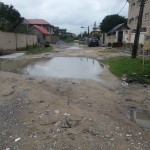


Òwe Yorùbá ni “Ọbẹ̀ tó dànù, òfò onilé, òfò àlejò” Àpẹrẹ pataki ni ọna àti ilé-iwosan ti ó bàjẹ́. Òfò ni ọ̀nà ti ó bàjẹ́ mú bá ara ilú nipa ijàmbá ọkọ̀ fún onilé àti àlejò. Ibàjẹ́ ile-iwosan jẹ òfò fún onilé àti àlejò nitori ọ̀pọ̀ àisàn ti kò yẹ kó pani ló ńṣe ikú pani, fún àpẹrẹ, itijú ni pé, Ọba, Ìjòyè àti Òṣèlú ńkú si àjò fún àìsàn ti kò tó nkan. Dákú-dáji iná mọ̀nà-mọ́ná ti ó sọ ilú si òkùnkùn jẹ́ òfò fún olówó àti aláini nitori, yàtọ̀ si ariwo àti òórùn, ai mọye enia ni ikú ẹ̀rọ mọ̀nà-mọ́ná ti pa. À ì sí Iná Mọ̀nà-mọ́ná àti Epo Ọkọ̀ bá Onílé pẹ̀lú Àlejò. Ìwà ìbàjẹ́, àbẹ̀tẹ́lẹ̀ gbi gbà fún ọ̀pọ̀lọpọ̀ ọdún ló da ọbẹ̀ ohun amáyédẹrùn danu.
Bi ọbẹ̀ bá dànù, kò ṣe kó padà, à fi ki enia se ọbẹ̀ tuntun, bi ó bá fẹ jẹ ọbẹ̀. Yorùbá ni “Ẹ̀bẹ̀ là nbẹ òṣikà, ki ó tú ilú ṣe”. Fún àtúnṣe, ó ṣe pàtàki ki gbogbo ará ilú parapọ̀ lati tún ohun ti ó ti bàjẹ́ ṣe nipa gbi gbé ogun ti iwà ìbàjẹ́ àti àbẹ̀tẹ́lẹ̀ gbi gbà.
ENGLISH TRANSLATION
Before the Nigerian Independence, Politicians under the leadership of Chief Obafemi Awolowo used the income from Cocoa and agricultural export to develop Yoruba land. Yoruba people benefitted immensely from the quality provision of infrastructure such as: free education; free health-care, Western Nigeria Television (WNTV) – the first of its kind in the Tropical Africa; Cocoa House (twenty-four storey – first sky scrapper in tropical Africa); tarred roads, public water; electricity etc. All these infrastructures were provided by the Politicians who loved their electorate, and it became exemplary for the other regions in Nigeria.
The Military who seized power by gun to force their way to leadership in place of Politicians, began “Unitary System” in place of “Federalism”, thereby taking over the Regional infrastructure under the Central Government. Since then, education – Schools, hospitals and other infrastructure that were provided by the Politicians as dividend of democracy began to decay. The destruction of infrastructure provided by the olden days Politicians can be compared to “Spilled Stew” that became a loss to both the Host and the Visitors.
Yoruba proverb said “The stew that spilled is a loss to both the Host and the Visitor”. A good example are the Roads and Hospitals that have decayed. Bad roads are loss to both Yoruba and non-Yoruba alike as accidents caused by bad road is not limited to Yoruba alone. Destructions of Hospitals is a loss to both the workers and the patients, as many illness which could not have led to death caused death. For example, it is a shame that Kings, prominent Nigerians including Politicians die abroad for medical problems that could been treated on time if the Hospitals were equipped. Incessant power cut throws the country into darkness is a loss for both the rich and the poor, because apart from the noise and air pollution, electricity generators has led to many deaths. Power outage and petroleum product scarcity, caused by several years of bribery and corruption led to the spillage of the infrastructural soup/stew.
When the stew is spilled, it cannot be recouped, the option is to prepare new stew if one is still interested in eating stew. Yoruba adage said “The wicked is appeased to take care of his/her town”. For corrections, it is important for the country to come together to reconstruct the infrastructure by kicking out bribery and corruption.
Originally posted 2016-04-08 11:31:39. Republished by Blog Post Promoter
“Njẹ́ ó yẹ ki Adájọ́ ti ó bá hu iwà ibàjẹ́ kọjá Òfin?” – “Should Judges be above the Law?”Originally Posted on October 11, 2016, last updated on October 21, 2016 and reposted on May 31, 2019
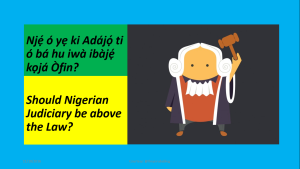
Ọ̀tẹlẹ̀múyẹ́ mú àwọn Adájọ́ ti wọn fi ẹ̀sùn iwà ibàjẹ́ kàn – DSS arrest of alleged corrupt Judges. Courtesy: @theyorubablog
Ni ọjọ́ Ẹti, ọjọ́ keje, oṣù kẹwa ọdún Ẹgbàálémẹ̀rindinlógún, ìròyìn pé àwọn Ọ̀tẹlẹ̀múyẹ́ já lu ilé àwọn Adájọ́ ti wọn fi ẹ̀sùn iwà ibàjẹ́ kàn jade lẹhin ti wọn ti dúró titi ki “Ẹgbẹ́ Adájọ́” gbé àwọn iwé ẹ̀sùn iwà ibàjẹ́ yẹ̀wò . Àwọn Ọ̀tẹlẹ̀múyẹ́ ròyìn pé wọn bá owó rẹpẹtẹ, pàtàki oriṣiriṣi owó òkè òkun, ni ilé awon Adájọ́ wọnyi. Lati igbà ti iroyin ti jade, àwọn ‘Ẹgbẹ́ Agbẹjọ́rò’ lérí pé àwọn yio da iṣẹ́ silẹ̀ ti Olóri Òṣèlú Muhammadu Buhari kò bá pàṣẹ ki wọn tú àwọn Adájọ́ naa silẹ̀ ni wéréwéré.
Ni ọ̀pọ̀lọpọ̀ ọdún sẹhin, Adájọ́ àti Agbẹjọ́rò ki i ṣe iṣẹ́ nitori àgbà ni ó ndá ẹjọ́ bi ijà bá bẹ́ silẹ̀ ni ilẹ̀ Yorùbá. Fun àpẹrẹ, bi àwọn ọmọdé bá njá, àgbàlagbà ti ó bá wà ni ilé ni yio là wọ́n, bi àwọn iyàwó-ilé bá njà, olóri ẹbi tàbi Àrẹ̀mọ ni yio la ijà. Bi ó bá jẹ́ ijà nitori ilẹ̀ oko, Baálẹ̀ Abúlé naa ni wọn yio kó ẹjọ́ lọ bá fún idájọ́, ti ó bá jẹ àdúgbò kan si ekeji ló njà, wọn á kó ẹjọ́ lọ bá Ọba ilú àti bẹ́ ẹ̀ bẹ́ ẹ̀ lọ. Lati wa idi òtitọ́, wọn lè kó àwọn ti ó njà lọ si ojúbọ Òriṣà lati búra. Lẹhin ti àwọn Ìlú-Ọba pin àwọn ọ̀pọ̀lọpọ̀ ilú àwọn Aláwọ̀dúdú, iṣẹ́ Agbẹjọ́rò di ki kọ́ ni ilé-iwé giga.
Kò si ọmọ Nigeria rere ti kò mọ̀ wi pé, ‘’Ẹ̀ṣẹ̀ nlá ijiyà kékeré tàbi ki ó má si ijiyà rara fún Olówó, ṣùgbọ́n ẹ̀ṣẹ̀ kékeré ijiyà nla ni fún tálákà tàbi aláìní’’, nitori iwà burúkú àwọn Adájọ́ ti ó ti gba àbẹ̀tẹ́lẹ̀ lọ́wọ́ àwọn Agbejoro. A ri gbọ́ wi pé bi “Ọ̀gá Àgbà Agbẹjọ́rò” bá ni ẹjọ́ ni iwájú Adájọ́ lẹhin ti ẹjọ́ agbejoro ti dé iwájú Adájọ́, wọn yio kọ́kọ́ gbọ́ ẹjọ́ ti “Ọ̀gá Àgbà Agbẹjọ́rò” gbé wá. Eleyi jẹ́ ikan ninú idi pàtàki ti ọ̀pọ̀lọpọ̀ Agbejoro ti fẹ́ fi ọ̀nàkọnà dé ipò “Ọ̀gá Àgbà Agbẹjọ́rò”. Ó yẹ ki wọn gbé eyi yẹ̀wò nitori ni ilú ti òfin bá wà, kò yẹ ki ẹnikẹni kọjá òfin. Ni Òkè-Òkun, Gó́́mìnà, àgbà Òṣèlú àti bẹ́ ẹ̀ bẹ́ ẹ̀ lọ kò kọjá òfin.
“Ẹni ma a bèrè ẹ̀tó lábẹ́ òfin yio lọ pẹ̀lú ọwọ́ mímọ́”, ẹ gb́e ọ̀rọ̀ yi yẹ̀wò bóyá bi wọ́n bá fi ẹ̀sùn iwà ibàjẹ́ kan Adájọ́, kò yẹ ki Ọ̀tẹlẹ̀múyẹ́ wa idi.
ENGLISH TRANSLATION
On Friday, the seventh of October, twenty-sixteen, news broke out that the Department of State Service (DSS) broke into the residence of Judges who were alleged for corruption after a long wait for the National Judicial Council (NJC) to address several petitions regarding corruption in the judicial system. DSS announced that large amount of money, particularly foreign currencies were recovered from Judges home. Since the news, members of the “Nigerian Bar Association (NBA)” called on President Muhammadu Buhari to release the arrested Judges immediately to avoid a show down with the Association.
According to the Yoruba culture, many years ago, professional Lawyers and Judges did not exist because disputes were settled by the ‘elders’. For example when children quarrel, the elders/first son in the family settles such, when fight broke out among the women/wives and other disputes in the family are settled by the ‘Head of the Family’, farmland disputes are settled by Community Leaders; neighbourhood fight are settled by the King etc. To investigate the truth, those in dispute are taken to the shrine to swear an oath about the matter in question. With colonisation of many African countries, people began to enrol for legal studies in the higher institutions.
There is no honest Nigerian that is not aware that “Serious crimes entails mild or no consequence for the elites or the rich ones while petty crimes attract heavy punishment for the poor Nigerians” as a result of corrupt Judges who are often bribed by the Lawyers. It has also been revealed that the “Senior Advocate of Nigeria (SAN)” cases in the Courts are given preferential treatment over other cases brought by other Lawyers/Advocates. This has led to the desperation by Lawyers to belong to this prestigious group at all cost.
One adage said “One who goes to equity must do so with a clean hand”, to put this into a discourse, should corrupt Judges be investigated by DSS or not?
Originally posted 2016-10-11 18:38:27. Republished by Blog Post Promoter
“Kò si ohun a nfi ọ̀gẹ̀dẹ̀ ṣe ni Ijeṣa, ẹiyẹ ló njẹ́” – Oú́njẹ ti a lè fi Ọ̀gẹ̀dẹ̀ ṣe pọ –“Ijesha people have nothing to do with plantain, it is the food of the birds” – Plantain can be used for variety o meals.Originally Posted on December 5, 2014, last updated on December 5, 2014 and reposted on June 1, 2019
Iyán ni oúnjẹ gidi fún Ijẹṣa, nitori wọn ni iṣu ju ọ̀gẹ̀dẹ̀ lọ. Òwe àtijọ́ ni pé “Kò si ohun a nfi ọ̀gẹ̀dẹ̀ ṣe ni Ijeṣa, ẹiyẹ ló njẹ́” nitori ọ̀pọ̀ ohun ni a lè fi ọ̀gẹ̀dẹ̀ ṣe, ni ayé òde òni, ṣùgbọ́n olówó ló njẹ́ nitori ó wọ́n. Ọ̀gẹ̀dẹ̀ yára lati sè, fún àpẹrẹ, ká fi ọ̀gẹ̀dẹ̀ din dòdò, ó ṣe dani kan jẹ ni àjẹ yó, tàbi jijẹ pẹ̀lú oúnjẹ miran bi dòdò àti ẹyin, dòdò àti ẹwa, dòdò àti irẹsi-ọlọ́bẹ̀ àsèpọ̀/irẹsi funfun. Lí lo ọ̀gẹ̀dẹ̀ dúdú fún àmàlà, sisè jẹ, tàbi sísun dára fún àwọn ti ó ni àrùn-àtọ̀gbẹ. Ọmọdé fẹ́ràn dòdò.
Ọ̀pọ̀lọpọ̀ irú oúnjẹ ti a lè fi iṣu ṣe, ni a lè fi ọ̀gẹ̀dẹ̀ ṣe. Fún àpẹrẹ, ẹ ṣe àyẹ̀wò díẹ̀ ninú àwọn oúnjẹ wọnyi:
| Oúnjẹ ti a lè fi iṣu ṣe | Oúnjẹ ti a lè fi Ọ̀gẹ̀dẹ̀ ṣe | Yam related meals | Plantain related meals |
| Iyán iṣu | Iyán ọ̀gẹ̀dẹ̀ | Pounded yam | Pounded plantain |
| Àmàlà̀ iṣu | Àmàlà ọ̀gẹ̀dẹ̀ tútù tàbi gbigbẹ | Yam flour meal | Raw plantain meal or Plantain flour meal |
| Iṣu sisè | ọ̀gẹ̀dẹ̀ sisè | Boiled yam | Boiled plantain |
| Dùndú | Dòdò | Fried yam | Fried plantain |
| Àsáró iṣu | Àsáró ọ̀gẹ̀dẹ̀ | Yam pottage | Plantain pottage |
| Iṣu sísun | ọ̀gẹ̀dẹ̀ sísun (Bọ̀ọ̀li) | Roasted yam | Roasted plantain |
| Iṣu lílọ̀ pẹ̀lú epo-pupa | ọ̀gẹ̀dẹ̀ lílọ̀ pẹ̀lú epo-pupa | Mashed yam with palm-oil | Mashed plantain with palm-oil |
| Ìpékeré isu | Ìpékeré ọ̀gẹ̀dẹ̀ | Yam chips | Plantain chips |

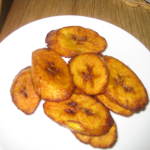
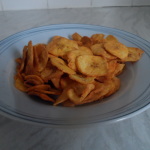
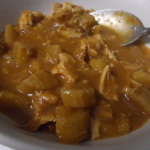



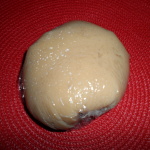
ENGLISH TRANSLATION
Pounded-yam is the real meal for an Ijesha man/woman, because agriculturally, they produced more yam than plantain. To say “Ijesha people have nothing to do with plantain, it is the food of the birds”, has become an outdated proverb, because, nowadays, plantains are being used in various ways, but it has become the food of the rich ones as a result of its high cost. It is easy to prepare plantain for meal, for example, preparing fried plantain is quick and can be eaten on its own as full meal or as compliments to other meals such as: fried-plantain and egg, fried plantain with stewed-beans, fried plantain jollof-rice/white rice. Using green plantain for solid meal, boiling it, or roasting it is good for Diabetes patient. Children love fried-plantain.
Many of the meal that can be prepared using yam can equally be substituted using plantain. Check out some of the examples of some of these meals in the table on this page.
Originally posted 2014-12-05 09:00:14. Republished by Blog Post Promoter
“Ìmọ́tótó borí àrùn mọ́lẹ̀, bi ọyẹ́ ti ḿborí ooru” –“Cleanliness conquers disease as cold (harmattan) overcomes the heat”Originally Posted on October 21, 2014, last updated on October 20, 2014 and reposted on June 1, 2019
Ìmọ́tótó borí àrùn mọlẹ̀, bọ́yẹ́ ti ḿborí ooru
Àrùn ìwọ̀sí tinú ẹ̀gbin là wá
Iná ni ḿborí aṣọ ẹlẹ́gbin
Ni ayé àtijọ́ tàbi, lati bi agogo marun idaji ni ìmọ́tótó ti bẹ̀rẹ̀, nipa gbigbá inú àti àyiká ilé. Lẹhin eyi, àwọn àgbàlagbà á ṣe itọ́jú ara, wọn o si bójú tó bi àwọn ọmọ ilé-iwé yio ti ji, wẹ̀, múra, jẹun àti palẹ̀mọ́ àti kúrò ni ilé lọ si ilé-iwé àti ki àwọn àgbàlagbà lọ si ibi iṣẹ́ òòjọ́.
Pàǹtí ni àtijọ́ wúlò fún ajílẹ̀ nitori ara oúnjẹ ni. Ewé ni wọn fi ńpọ́n oúnjẹ tàbi ki wọn bu oúnjẹ sinú abọ́ àlò-tún-lò, omi wa ninú àmù (ikòkò amọ̀), ṣùgbọ́n láyé òde òni, ike aláyọ́ ni wọn fi ńbu oúnjẹ, wọn a si mu omi ninú àpò ọ̀rá. Ike àti ọ̀rá ki kẹ̀, ó si léwu fún ẹja odòàti ẹranko lati gbé mi, ó tún léwu fún àyìká. Àwọn ọ̀rá àti ike wọnyi pẹ̀lú nkan ti ó dá kún pàǹtí.
Ìmọ́tótó jinà si àwọn ara ilú ńlá, pàtàki, ilú Èkó nibiti ọpọ òṣiṣẹ́ ti ji jade lọ si ibi iṣẹ́ ki agogo marun idaji tó lù, bẹni wọn kò ni wọlé titi di agogo mẹwa alẹ́ nitori sún-kẹrẹ fà kẹrẹ ọkọ̀. Eyi kò lè jẹ ki wọn ri àyè tọ́jú inú ilé, àyiká tàbi ara. Ìjọba tún dá kún ẹ̀gbin ti ó gba ilú kan nitori ai pèsè àyè àti itọ́jú fún pàǹtí. Eleyi ńjẹ́ ki ará ilú kó ohun ẹ́gbin si ibikibi, bi oju-àgbàrá, ẹ̀bá-ọ̀nà, ori titi, inú odò àti bẹ̃bẹ̃ lọ. Kikó ohun ẹ̀gbin di ojú-àgbàrá ńfa adágún omi ti ó ńfa ẹ̀fọn, ikún omi àti àrùn lati ara kòkòrò ti pàǹtí fa.

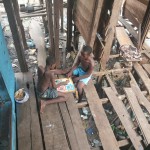
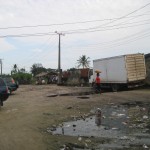
Ọ̀rọ̀ Yorùbá ni “Ìmọ́tótó borí àrùn mọ́lẹ̀, bi ọyẹ́ ti ḿborí ooru” àti orin Ìmọ́tótó ti wọn fi ńkọ́ àwon ọmọ ilé-iwé alakọbẹrẹ ṣe iranti à ti wá nkan ṣe si pàǹtí ti ó gba ilú kan.
ENGLISH TRANSLATION
In the olden days, cleanliness began at about five o’clock at dawn, by sweeping in and around the house. After this, the elders took care of their bodies, supervised the school children, to wake-up on time, take their bath, dress-up, eat and prepare to leave home to School while the elders go to find their daily bread.
Refuse in the olden days are biodegradable because it is mostly made up of edibles that turns into manure. Leaf is used to wrap food or food are served in recyclable dish, drinking water are preserved with earthen pot, but nowadays, food are served in plastics while they drink from plastic or water sachet. Both plastics and plastic water sachet are non-biodegradable as they are dangerous for river/sea fishes and animals to swallow and they are bad for the environment. These plastic containers have contributed to the amount of waste.
Cleanliness is far from big city dwellers, particularly, in Lagos where many workers rush out at about five o’clock early in the morning and would not return till ten o’clock at night as a result of heavy traffic. This does not afford City dwellers enough time to care for the home, environment or their body. The Government has also contributed to the filth/refuse that has taken over many cities as a result of not providing enough dumpsite and waste treatment. This has made people dump refuse just anywhere such as drainages, roadside, on the road, river or sea etc. Disposing refuse into drainage causes water stagnation that breeds mosquitoes, flood and diseases caused by insects that breeds on refuse.
People should use the Yoruba adage that said “Cleanliness conquers disease just as cold (harmattan) overcomes the heat” and various songs about cleanliness taught to School children as a reminder to taking action to reduce refuse littering every corner.
Originally posted 2014-10-21 09:25:00. Republished by Blog Post Promoter
“Òjò tó rọ̀ ló mú pẹ̀tẹ̀pẹ́tẹ̀ wá”: Ìgbà Òjò dé – “It is the rain that fell that brought about much mud”: The Raining Season is hereOriginally Posted on June 9, 2015, last updated on June 9, 2015 and reposted on June 1, 2019
“Òjò ibùkún lọ́dọ̀ ẹni kan, ni òjò ìbànújẹ́ lọ́dọ̀ ẹlòmíràn”. Lai si òjò, ọ̀gbẹlẹ̀ á wà, ọ̀gbẹlẹ̀ pi pẹ́ ló nfa iyàn. Inú àgbẹ̀ ma ndun ni àsikò òjò nitori wọn mọ̀ pé ohun ọgbin wọn yio hù, oúnjẹ àti jẹ, àti tà yio pọ̀ si. Ọmọdé àti àgbà ló fẹ́ràn òjò nitori ó mú ìtura wá, pàtàki ni igbà ooru.
Ni idà keji, òjò àrọ̀-irọ̀ dá lè fa ìbànújẹ́ fún àgbẹ̀ àti ará ilú, pàtàki fún; ẹni ti ilé rẹ njò, ẹni ti ó kọ́lé si ọ̀nà àgbàrá òjò, ó nfá ẹ̀fọn/yànmùyánmú eyi ti ó nfá ibà, àgbàrá lè gbá ohun ọ̀gbìn lọ, agbara lè yalé àti bẹ ́ẹ̀ bẹ́ ẹ̀ lọ. Fún àpẹrẹ, irònú àti ibànújẹ́ ni ìgbà òjò jẹ́ fún ọ̀pọ̀lọpọ̀ ará ilú Èkó, nitori ọ̀nà fún àgbàrá kò tó, eyi ma njẹ ki àgbàrá ba ilé àti ọ̀nà jẹ́. Ni Ibadan, irònú na a dé fún àwọn ti ó kọ́lé si ẹ̀gbẹ́ odò Ògùnpa nitori ìbẹ̀rù omi-yalé.

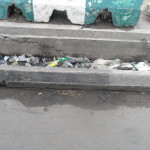
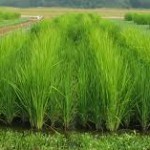
Ọ̀rọ̀ Yorùbá ni “Òjò kò bẹni kan ṣọ̀tá, ẹni eji ri leji npa”. ọ̀pọ̀lọpọ̀ igbà, òjò kò rọ̀ fún ìbànújẹ́ èniyàn pàtàki bi èniyàn bá palẹ̀mọ́ fún òjò nipa ti tú àyíká ṣe lai kó pàntí si ọ̀nà àti ojú àgbàrá àti gbi gbẹ́ ọ̀nà fún àgbàrá. Òwe Yorùbá sọ wipé “Òjò tó rọ̀ ló mú pẹ̀tẹ̀pẹ́tẹ̀ wá”. Pẹ̀tẹ̀pẹ́tẹ̀ dára fún ohun ọ̀gbin bi ìrẹsì àti fún agbo Ẹlẹ́dẹ̀ ṣùgbọ́n kò yẹ ilú. Bi Ìjọba bá ṣe ọ̀na fún ọkọ̀ àti ẹlẹ́sẹ̀, pẹ̀tẹ̀pẹ́tẹ̀ á din kù. Eyi ti ó ṣe pàtàki ni ki Ìjọba àti ará ilú sowọ́pọ̀ lati tú agbègbè àti àyíká ṣe lati lè lo òjò fún rere.
ENGLISH TRANSLATION
“What some regarded as rain of blessing can be regarded as rain of sorrow for others”. Without the rain, there will be drought, long time drought leads to famine. Farmers are happy during raining season because the crops will grow and this would lead to good harvest, plenty of food to eat and to sell. Children and adults alike love the rain because it eases out the heat.
On the other hand, continuous downpour could cause havoc for both the farmers and city dwellers alike, particularly for; those with leaking roof, those who built along the drainage way or canal, it aids mosquito breeding that causes Malaria or Fever, flood can sweep away farmland and properties etc. For example, raining season brings about fear and sadness for Lagos people, because of lack of adequate drainage system, hence the destruction of Homes and properties as well as the Roads by flooding. In Ibadan, fear often come upon people who built their Houses around Ogunpa River, as a result of fear of flooding.
According to Yoruba adage meaning “Rain is no enemy to anyone, it falls on everyone along its path”. Oftentimes, rainfall is not meant to cause sorrow for people if one is adequately prepared by taking care of ones surrounding by clearing refuse from the road and drainages and building more gutters and canals to contain flood. Another Yoruba proverb said “The rain that fell brought about much mud”. Mud is good for some food crops such as Rice plantation and also for Piggery but it is not befitting for the city. The menace of mud will be reduced if the Government can provide good road network for both vehicular and pedestrian movement. The most important solution is for both the Government and the people to work in tandem to care for the environment and neighbourhood in order to put the rain to good use.
Originally posted 2015-06-09 13:56:48. Republished by Blog Post Promoter
“Obinrin ti kò ni orogún, kò ti mọ àrùn ara rẹ̀”: A woman who has no co-wife cannot yet identify her diseaseOriginally Posted on June 20, 2014, last updated on July 4, 2014 and reposted on June 1, 2019
Òwe yi fi ara han ni itan iyàwó Aṣojú-ọba, ti a ò pè ni Tinumi pẹ̀lú ọmọ rẹ̀ kan ṣoṣo, ọkùnrin ti a mọ̀ si Mofẹ́. Mofẹ́ dàgbà lati fẹ obinrin. Ó̀ yan obinrin ti à ńpè ni Àyànfẹ́ ni iyàwó àfẹ́sọ́nà. Nigbati ó mú Àyànfẹ́ lọ han àwọn òbi rẹ, Bàbá Mofẹ́ gba Àyànfẹ́ tọwọ́-tẹsẹ̀, ṣùgbọ́n iyá Mofẹ́ fi àáké kọ́ri pé ọmọ ohun kò ni fẹ́ Àyànfẹ́. Wọn bẹ̀rẹ̀ idi ti kò ṣe fẹ́ ki ọmọ ohun fẹ ẹni ti ó múwá, Tinumi kò ri àlàyé ṣe ju pé ohun kò fẹ́ ki ọmọ ohun fẹ́ “Àtọ̀hún rin wa – ọmọ ti kò ni iran”. Ọmọ rẹ naa fi àáké kòri pé ẹni ti ohun ma fẹ ni Àyànfẹ́.
Tinumi sọ àfẹ́sọ́nà ọmọ rẹ di orogún, gbogbo ibi ti ó bá ti pàdé Àyànfẹ ni ibi àjoṣe ẹbi ni ó ti ḿbajà pé ki ó dẹ̀hin lẹhin ọmọ ohun. Àyànfẹ́ lé ọmọ rẹ titi ṣùgbọ́n ó kọ̀ lati dẹhin.
Lẹhin ọdún marun ti Mofẹ́ àti Àyànfẹ́ ti ńṣe ọ̀rẹ́, iwé jade pé wọn gbé Bàbá Mofẹ́. Gẹgẹ bi Aṣojú-Ọba lọ si Òkè-òkun. Bàbá ṣètò bi ọmọ àti iyàwó ti ma tẹ̀lé ohun. Ọmọ kọ̀ pé ohun kò lọ pẹ̀lú òbi ohun ti àfẹ́sọ́nà ohun kò bá ni tẹ̀lé àwọn lọ. Bàbá gbà pé ọmọ ohun ti tó fẹ́ iyàwó, wọn ṣe ètò igbéyàwó fún Mofẹ́ àti àfẹ́sọ́nà̀ rẹ. Lẹhin ti Mofẹ́ àti Àyànfẹ́ ṣe iyàwó tán, wọn tẹ̀lé Bàbá àti Ìyá wọn lọ si Òkè-okun lati má jọ gbé.
Àrùn ara Tinumi, aya Aṣojú-ọba bẹ̀rẹ̀ si han nitori ó sọ iyàwó ọmọ rẹ di orogún. Nigbati ọkọ rẹ ri àlébù yi, ó pinu lati wa orogún fun Tinumi nitori ai ni orogún ni ó ṣe sọ aya ọmọ rẹ di orogún. Gẹgẹ bi a ti mọ, igbéyàwó ibilẹ̀ kò ni ki ọkùnrin ma fẹ iyàwó keji. Nigbati Bàbá Mofẹ́ fẹ́ iyàwó kékeré, ọmọ àti iyàwó kó kúrò lọ si ilé tiwọn, inú rẹ bàjẹ́ nigbati o kũ pẹ̀lú orogún rẹ. Ó jẹ èrè iwà burúkú àti ìgbéraga.
ENGLISH TRANSLATION
This proverb is clearly depicted in the story of one Ambassador’s wife, named Tinumi (meaning my own mind) who had an only son named Mofe (meaning I want). Mofe became old enough to date women. He developed an intimate relationship with a lady called Ayanfe (which means chosen to love). When he took Ayanfe to meet his parents, his father received Ayanfe very warmly, while his mother refused bluntly, insisting that her son will not marry Ayanfe. She was asked the reason for her objection, she had no tangible reason other than she does not want her son to marry “An unknown person – a child without pedigree”. His son too, refused to accept his mother’s verdict and insisted that it is either Ayanfe or nobody.
Tinumi turned her son’s fiancé to a co-wife/rival, she would always disgrace Ayanfe whenever they met at family gatherings demanding that she left her son alone. With this experience, Ayanfe attempted to break up the relationship with her son but he refused to break up with her.
After five years into their relationship, Mofe’s father received a letter of posting to Foreign Mission as an Ambassador. He then arranged for his son and wife to join him. The son said he would not join his parents without his fiancé. The father accepted to this term because his son is old enough to marry, arrangement was then made for Mofe to marry his fiancé. After Mofe and Ayanfe’s marriage, they moved along with Mofe’s parents to his post oversea.
Tinumu, the Ambassador’s wife’s disease became apparent when he turned his daughter-in-law to a co-wife. When her husband noticed her bad behaviour, he decided to get her a proper rival/co-wife, thinking that it was because she had no co-wife that made her turn her daughter-in-law to one. As known, traditional marriage does not prevent a man from taking a second wife. After Mofe’s father took a new wife, his son and his wife moved on to their own resident, Tinumi was very sad as she was now left with her co-wife. She got the reward of her bad manners and pride.
Originally posted 2014-06-20 13:30:24. Republished by Blog Post Promoter
“Ìgbésí Ayé Aláwọ̀-dúdú Ṣe pàtàki” pé Àwọ Lè Yàtọ̀, Ṣùgbọ́n Ẹ̀jẹ̀ Kò Yàtọ̀ –“BLACK LIVES MATTER”, Though Colour may be different Human Blood is not”Originally Posted on July 12, 2016, last updated on July 12, 2016 and reposted on June 1, 2019

B;ack Lives Matter protesters
Ikú àwọn ọkùnrin Aláwọ̀-dúdú ni ọwọ́ Ọlọpa ni orilẹ̀ èdè Àméríkà pọ̀ ju pi pa àwọn aláwọ̀ funfun tàbi laarin àwọn ẹ̀yà kékeré miran. Ọ̀sẹ̀ kini oṣù keje ọdún Ẹgbàálémẹ́rìndínlógún ṣòro fún àwọn Àméríkà.
Ìròyìn bi Ọlọpa funfun ti yin ibọn si ọkùnrin Aláwọ̀-dúdú ni ojú ọmọ àti aya nlọ lọ́wọ́ nigbati ìròyìn bi Ọlọpa funfun ti pa okunrin Aláwọ̀-dúdú miran bi ẹni pa ẹran ti tún jáde. Àwọn iroyin yi bi àwọn èrò ninú, nitori èyi, aláwọ̀ dúdú àti funfun tú jáde lati fi ẹ̀dùn hàn pé “Ìgbésí Ayé Aláwọ̀-dúdú ṣe pàtàki” pé àwọ lè yàtọ̀, ṣùgbọ́n ẹ̀jẹ̀ kò yàtọ̀. Ó ṣe ni laanu pé Micah Johnson ọkùnrin Aláwọ̀-dúdú, jagunjagun fun orile ede Àméríkà, ló pa Ọlọpa marun, ó si ṣe ọ̀pọ̀lọpọ̀ léṣe nipa gbi gbé òfin si ọwọ́ ara rẹ pẹ̀lú ibinu.

Micah Johnson a 25 year old U.S. Army Veteran, the Cops shooter
Ìwà burúkú ti di ẹ̀ ninú àwọn Ọlọpa funfun yi hu ki ṣe ìwà ti ó wọ́pọ̀ laarin ọ̀pọ̀lọpọ̀ Ọlọpa aláwọ̀ funfun tàbi gbogbo Ọlọpa ti wọn nṣe iṣẹ́ ribiribi lati dá àbò bo àwọn ará ilú. Ó ṣe ni laanu pé àwọn Aláwọ̀-dúdú ni Ọlọpa nda dúró jù ni ojú ọ̀nà ọkọ̀, ti ó dẹ̀ n kú ni irú idá dúró bẹ́ ẹ̀. Fún ọ̀pọ̀lọpọ̀ ọdún, onidajọ ọ̀daràn kò ṣe idájọ òdodo fún Aláwọ̀-dúdú, èyi kò ran nkan lọ́wọ́.
A lérò wi pé àwọn oníwà ìbàjẹ́ ti ó jẹ́ Olóri Òṣèlú ilẹ̀ Alawo dudu ti ó n ja ilú lólè lati kó irú, ọrọ̀ ilú lọ pamọ́ si àwọn ilú ti o ti dàgbà sókè yio ronú pìwàdà. Èrò ti ó n kú ni ilẹ̀ Aláwọ̀-dúdú nitori ọ̀nà ti kò dára, a i si ilé-ìwòsàn gidi, a i ni ohun amáyédẹrùn bi omi, iná mọ̀nàmọ́ná kò jẹ ki Aláwọ̀-dúdú Àméríkà lè fi orisun wọn yangàn.
ENGLISH TRANSLATION
Killing of African-American men in the hands of Police in the United States of America is far more than the killing of white-male or other minorities. The first week of July 2016 is particularly a difficult one for the Americans.
The news of an African-American man shot severally by white Policemen in front of his daughter and partner was on going when another one was slaughtered by two white Policemen even after he was held down. These news infuriated the public as both white and black came together to protest to support that “Black Lives Matter”, though colour may be different, blood is not. Unfortunately, Micah Johnson, an African American who served his country in the military took the law into his hands by killing five Police Officers and injured many other Policemen who were protecting the protesters.
The action of these few white Policemen does not represent the majority of white Policemen or Police in general that are doing wonderful work in protecting the people. Unfortunately, more African-American are pulled over or killed during such traffic pull-over. Many years of injustice in the American criminal justice system that show bias against the minority especially the African-American has not help matters.
It is hoped that the corrupt African leaders that are looting the public treasury and hiding such in the developed world would have a re-think. The Africans being killed daily on the Road or as a result of good medical care or lack of basic infrastructure such as provision of water and electricity is not encouraging the African-American to be proud of their African heritage.
Originally posted 2016-07-12 22:58:34. Republished by Blog Post Promoter
“Ilé làńwò ki a tó sọmọ lórúkọ – Orúkọ Yorùbá” – Home is examined before naming a child – Yoruba NamesOriginally Posted on July 1, 2014, last updated on July 4, 2014 and reposted on June 2, 2019
Ni àṣà Yorùbá, ni ayé àtijọ́, ọjọ́ keje ni wọn ńsọmọ obinrin ni orúkọ, ọjọ́ kẹsan ni ti ọmọ ọkùnrin, ṣùgbọ́n ni ayé òde òni, ọjọ kẹjọ ni wọn sọ gbogbo ọmọ lórú̀kọ. Yorùbá ki sọmọ lórúkọ ni ọjọ́ ti wọn bi,ṣùgbọ́n Yorùbá ti ó bá bimọ si òkè-òkun lè fún ilé-igbẹbi lórúkọ ọmọ gẹgẹ bi àṣà òkè-òkun ki wọn tó sọmọ lórúkọ.
Òwe Yorùbá ni “Ilé làńwò, ki a tó sọmọ lórúkọ” nitori eyi, Bàbá àti Ìyá yio ronú orúkọ ti ó dara ti wọn yio sọ ọmọ ni ọjọ́ ikómọ. Orúkọ Yorùbá lé ni ẹgbẹ-gbẹrun, àwọn orúkọ yi yio jade ni ipasẹ̀ akiyesi iṣẹ̀lẹ̀ ti o ṣẹlẹ̀ ni àsikò ti ọmọ wa ni ninú oyún; ọjọ́ ibi ọmọ; orúkọ ti ó bá idilé tabi ẹsin àtijọ́ àti ẹsin igbàlódé mu.
A o ṣe àyẹ̀wò àwọn orúkọ igbalode àti àwọn orúkọ ibilẹ ti ó ti fẹ ma parẹ. A o bẹrẹ pẹlu orukọ ti o wọpọ ni idile “Ọlá”, “Ọba”, “Olóyè” àti “Akinkanjú ni àwùjọ ni ayé òde òni. “Ọlá” ninú orúkọ Yorùbá ki ṣe owó àti ohun ini nikan, Yorùbá ka “ilera” si “Ọlà”.
ENGLISH TRANSLATION
In Yoruba culture, in the olden days, girl child is named on the seventh day, boy child is named on the ninth day, but nowadays, all babies are named on the eigth day. Yoruba do not name their babies on the same after birth, but Yoruba in diaspora particularly abroad (Europe/America) could give name at the Maternity Ward according to the tradition there before the naming ceremony.
According to the Yoruba Proverb “Home is examined before naming a child”, as a result, father and mother often reason together to arrive at a beautiful name to give the child on the day of Naming Ceremony. There several thousands of Yoruba names, these names are derived from the circumstances during pregnancy and the child’s birth; in line with family names; or derived from traditional beliefs or modern day religion.
We shall examine some of the contemporary names and the traditional names that are almost extinct. We shall start with common names relating to “Wealth”; “Kingship”; “Chieftaincy” and “Valiant families within the communities”, in the modern day. “Wealth” in Yoruba names is not restricted to “Money” or “Properties” as Yoruba regard “Health” as “Wealth”.
Originally posted 2014-07-01 20:03:09. Republished by Blog Post Promoter
Ààntéré ọmọ Òrìṣà-Omi – “Ọmọ o láyọ̀lé, ẹni ọmọ sin lo bimọ”: Aantere – The River goddess child “Children are not to be rejoiced over, only those whose children bury them really have children”.Originally Posted on October 11, 2013, last updated on August 17, 2015 and reposted on June 2, 2019
Yorùbá ka ọmọ si ọlá àti iyì ti yio tọ́jú ìyá àti bàbá lọ́jọ́ alẹ́. Eyi han ni orúkọ ti Yorùbá nsọ ọmọ bi: Ọmọlọlá, Ọmọniyi, Ọmọlẹ̀yẹ, Ọmọ́yẹmi, Ọlọ́mọ́là, Ọlọ́mọlólayé, Ọmọdunni, Ọmọwunmi, Ọmọgbemi, Ọmọ́dára àti bẹ̃bẹ̃ lọ. A o tun ṣe akiyesi ni àṣà Yorùbá pe bi obinrin ba wọ ilé ọkọ, wọn ki pe ni orúkọ ti ìyá ati bàbá sọ, wọn a fun ni orúkọ ni ilé ọkọ. Nigbati ó bá ṣẹ̀ṣẹ̀ wọlé wọn a pe ni “Ìyàwó” ṣùgbọ́n bi ó bá ti bímọ a di “Ìyá orúkọ àkọ́bí”, bi ó bá bi ibeji tabi ibẹta a di “Ìyá Ibeji tàbi Ìyá Ibẹta”. Bàbá ọmọ a di “Bàbá orúkọ ọmọ àkọ̀bí, Bàbá Ibeji tàbi Bàbá Ìbẹta”. Nitori idi eyi, ìgbéyàwó ti kò bá si ọmọ ma nfa irònú púpọ̀.
Ni abúlé kan ni aye atijọ, ọkọ ati ìyàwó yi kò bímọ fún ọpọlọpọ ọdún lẹhin ìgbéyàwó. Nitori àti bímọ, wọn lọ si ilé Aláwo, wọn lọ si ilé oníṣègùn lati ṣe aajo, ṣùgbọ́n wọn o ri ọmọ bi. Aladugbo wọn gbà wọn niyanju ki wọn lọ si ọ̀dọ̀ Olóri-awo ni ìlú keji. Ọkọ àti ìyàwó tọ Olóri-awo yi lọ lati wa idi ohun ti wọn lè ṣe lati bímọ. Olóri-awo ṣe iwadi lọ́dọ̀ Ifa pẹ̀lú ọ̀pẹ̀lẹ̀ rẹ, o ṣe àlàyé pe ko si ọmọ mọ lọdọ Òrìṣà ṣùgbọ́n nigbati ẹ̀bẹ̀ pọ, o ni ọmọ kan lo ku lọdọ Òrìṣà-Omi, ṣùgbọ́n ti ohun bá gba ọmọ yi fún wọn kò ni bá wọn kalẹ́, nitori ti o ba lọ si odò ki ó tó bi ọmọ ni ilé ọkọ yio kú, Òrìṣà-Omi á gba ọmọ rẹ padà. Ọkọ àti Ìyàwó ni awọn a gbã bẹ.
Ìyàwó lóyún, ó bi obinrin, wọn sọ ni “Ààntéré” eyi ti ó tumọ si “Ọmọ Omi”. Gbogbo ẹbi àti ará bá wọn yọ̀ ni ọjọ́ ìsọmọ lórúkọ. Ni ọjọ kan, Ààntéré bẹ awọn òbí rẹ pé ohun fẹ́ sáré lọ fọ abọ́, awọn òbí rẹ kọ. Nigbati ẹ̀bẹ̀ pọ wọn gbà nitori o ti dàgbà tó lati wọ ilé-ọkọ, wọn ti gbàgbé ewọ ti Olóri-awo sọ fún wọn pe, o ni lati wọ ile ọkọ ki o to bímọ. Ààntéré dé odò, Òrìṣà-omi, ri ọmọ rẹ, o fi iji nla fa Ààntéré wọ inú omi lai padà.
Ìyá àti Bàbá Ààntéré, reti ki ó padà lati odò ṣùgbọ́n kò dé, wọn ké dé ilé Ọba, Ọba pàṣẹ ki ọmọdé àti àgbà ìlú wa Ààntéré lọ. Nigba ti wọn dé idi odò, wọn bẹrẹ si gbọ orin ti Ààntéré nkọ, ṣùgbọ́n wọn ò ri.
Alantere, Ààntéré 2ce
Bàbá ni ki nma romi
Ààntéré
Ìyá ni ki nma romi
Ààntéré
Mo ṣaigbọran mo wa romi
Ààntéré
Mo dódò, mo b’Ólú-omi
Ààntéré
Ọkan suké, ọ̀kán yarọ
Ààntéré
Ọkan yoku ṣeti gbọin
Bẹ̀ ba délé o, ẹ ki ìyá fún mi
Ààntéré
Ẹ ki Bàbá fún mi
Ààntéré
Kẹ pe ó dojú àlá o
Ààntéré
Ka tó ri ra
Ààntéré
Gẹgẹbi òwe Yorùbá ti o ni “Ọmọ o láyọ̀lé, ẹni ọmọ sin lo bímọ”. Ìyá àti Bàbá Ààntéré ranti ìkìlọ̀ nigbati wọn gbọ́ orin yi pé kò si àtúnṣe, Òrìṣà-omi ti gba ọmọ rẹ padà.
ENGLISH TRANSLATION
Yoruba regards children as asset of honour that will care for mothers and fathers in their later years. This is reflected in the names Yoruba gives to children with meaning centred round wealth, honour etc. It is also observed that when a lady is married, she is not called by her name but “Wife or a nickname given in her husband’s home”, but as soon as she has children she becomes “Mother of the first child’s name or even she has twin or triplet, this also added”. Same thing happens to the fathers – the name of the children are attached “Father of …” as a result of this culture, a home without children causes lots of stress.
In one village in the olden days, there lived a couple that had no children for many years after marriage. In their efforts to have children, they sought the help of many Traditional Doctors without success. A neighbour advised that they seek the help of the Chief Traditional Doctor in the next village. On getting to him, he consulted Ifa oracle (Yoruba Deity) and told them there are no more children with the River goddess except one, but they pleaded desperately. He then told them the consequence of giving them the only child left with the River goddess as she would die and return to the River goddess if she ever comes near the river before she got married and has a child. They agreed in their desperation.
The wife then conceived and gave birth to a baby girl named “Aantere”, a name meaning “Child of the River”. The whole family and the people rejoiced with the couple during the naming ceremony. One day, Aantere sought her parent’s permission to going to wash the dishes at the river, but the parents refused. When she pleaded continuously they gave in to her request because they have forgotten the Traditional Doctor’s warning and they reasoned that she was old enough in contrary to the fact that she is not yet married with a child. As soon as Aantere got to the river, the River goddess identified her and caused a storm that dragged Aantere into the river without returning.
Aantere’s mother and father waited for her return from the river, but she did not return, hence they ran to the King’s palace in tears, the King ordered a search party of both young and old. When they got to the river they heard Aantere’s song but she was nowhere to be seen.
According to “Yoruba Proverbs” as translated by Oyekan Owomoyela: “Children are not to be rejoiced over, only those whose children bury them really have children”. The mother and father of Aantere remembered an earlier warning when they heard the song and realised there was no remedy that could bring her back as River-goddess has gotten her child back. Read full story in English in the ” YORUBA FOLKTALES” by Amos Tutuola.
Originally posted 2013-10-11 20:24:26. Republished by Blog Post Promoter
ỌJỌ GBOGBO NI TI OLÈ – Everyday is for the thief … a warning to fraudstersOriginally Posted on February 22, 2013, last updated on March 10, 2013 and reposted on June 2, 2019
“ỌJỌ GBOGBO NI TI OLÈ, ỌJỌ KAN NI TOLÓHUN”: “EVERYDAY IS FOR THE THIEF, ONE DAY FOR THE OWNER”.
Ní ọjọ Ẹti ọjọ keji lelogun oṣu keji ọdún yi, Ẹrọ amóhùn máwòrán Iluọba (BBC 1) tu asiri ọmọkunrin kan ti o ni iwe ijẹri irina ọmọ Naijeria ni oruko ọtọtọ mẹta ti o fi nlu ìjọba ní jìbìtì gba iranlọwọ ti ko tọ si. O ti gba owó rẹpẹtẹ ki wọn to ri mu.
Ni Ìlú Ọba (United Kingdom) Ìjọba pese ilé fún awọn abirùn ati aláìní ti o jẹ ọmọ onilu ati iranlọwọ miran lati mu ayé dẹrùn fún wọn. Àwọn àjòjì ti o fi èrú ati irọ gba àwọn iranlọwọ yi, wọn a dẹ tún fi ma yangan titi ọjọ ti olóhun yio fi muwọn. Irú iwa burúkú bi ka fi èrú gba ohun ti ko tọ wọnyi mba orúkọ jẹ.
Ẹ jẹ ki a fi owé Yorùbá to wipe “Ọjọ gbogbo ni tolè, ọjọ kan ni tolóhun” se ikilo fun iru awọn oníjìbìtì bẹ ere jibiti, nitori bi o ti wu ko pẹ to, ọjọ kan ọwọ òfin a ba iru àwọn bẹ. Nigbati wọn ba ri wọn mu, wọn a ko ìtìjú ba orúkọ idile ati ìlú wọn.
ENGLISH TRANSLATION
On Friday 22nd February 2013, BBC 1 Television Channel exposed a man with 3 Nigerian Passports in different names that he was using to defraud the Government by collecting benefits that he was not entitled to claim. He had collected large sums of money before he was caught.
In the United Kingdom, the government provides housing and other benefits for the disabled and less privileged citizens. These benefits are not meant for non-citizens or privileged Citizens. Sadly, some immigrants that obtained such benefits fraudulently, often boast until they are caught. This kind of fraud tarnishes names and countries of such immigrants.
Let us apply the Yoruba proverb that says “Every day is for the thief, and one day for the owner” to warn such fraudsters of the consequences because no matter how long it takes, the long arm of the law will catch up with them. And when they are caught in the act it brings disgrace to their family name and nation.
Originally posted 2013-02-22 20:58:21. Republished by Blog Post Promoter

